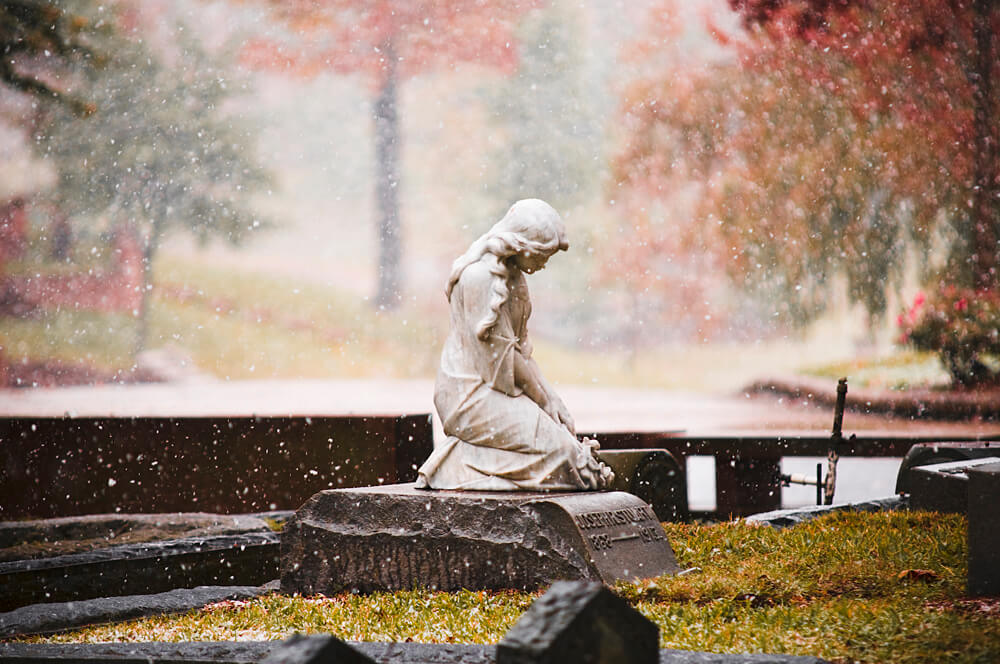Podcast: Download
Subscribe: RSS
Editor’s note: when we first published this post nearly a decade ago, it was common to use the phrase “committed suicide.” The term “died by suicide” is a more accepted term now. We’ve chosen to keep the original title with the hope that people seeking this information will easily be able to find it regardless of what search terms they use.
There are no words! There are no words which will fix the situation or take away your friends devastating grief. The most important thing you can do is to be there. Go to the visitation and the funeral. Your presence is the most important gift you can give your friend. Too often in difficult situations like this one, we find excuses why we can’t go. Mainly, we don’t want to go because it is difficult and we don’t know what to say or do.
Not too long ago, my nephew told me about some dear friends whose son had died from an overdose of drugs. When he went to the funeral home, he went up to Angie, the mother, and said, “Angie, I don’t know what to say. I am just so sorry.” Angie replied, “That is all you can say, Larry.” Then Larry said, “We hugged and cried.”
When I find myself in this situation, I often say (from the heart), “I can’t even imagine how much you must hurt (or how lonely you must feel or how devastated you must be).”
Avoid using language that implies the person who died by suicide was to blame. It is hurtful to say, “killed himself,” “ended his life,” or “took his life.” The emphasis should instead be focused on grieving the death of a special person.
When talking with your friend and the family of the deceased, don’t be afraid to talk about his death, just as you would normally talk about the death of any friend. Don’t be afraid to mention the loved one’s name and to recall pleasant memories you shared with the deceased.
The following is helpful advice from Hospice, and it applies to many situations, not just deaths by suicide.
Comments to avoid when comforting the bereaved:
- “I know how you feel.” One can never know how another may feel. You could, instead, ask your friend to tell you how he or she feels.
- “It’s part of God’s plan.” This phrase can make people angry and they often respond with, “What plan? Nobody told me about any plan.”
- “Look at what you have to be thankful for.” They know they have things to be thankful for, but right now they are not important.
- “He’s in a better place now.” The bereaved may or may not believe this. Keep your beliefs to yourself unless asked.
- “This is behind you now; it’s time to get on with your life.” Sometimes the bereaved are resistant to getting on with life because they feel this means “forgetting” their loved one. In addition, moving on is easier said than done. Grief has a mind of its own and works at its own pace.
- Statements that begin with “You should” or “You will.” These statements are too directive. Instead you could begin your comments with: “Have you thought about. . .” or “You might. . .
Listen to the podcast and review my video, What to say in a funeral line, for more advice on this topic.
For wise words about caring for the bereaved, let us consider the author James R. Kok. Kok, who was director of pastoral care at the Crystal Cathedral in Garden Grove, California. He is the author of the book 90% of Caring is Just Showing Up, and writes, “The Christian community should hold the franchise on Christ-like-care giving, but this is a task universally avoided. Jesus died for us. We die for others when we vacate our comfort zones, the places where we are in control, and stand closer to the heartbroken. We may feel helpless, weak and tongue-tied, but we will know that we are partners in doing the right thing. Just be there!”
Post updated 2024
Want More Tips Like This? Sign Up for Our Newsletter










Please don’t use the word committed, the person has not committed a crime. They completed suicide based on there thoughts, needs, life or whatever it was that brought them to this action. It was a choice. It was a crime in the eyes of godly believers in days gone by, and had the person survived an attempt they were tried in a court of law and were prosecuted. But we are much more aware of the despair people find themselves in bringing them to this point. X
I’m dealing with the suicide of my brother from another mother. Forty two years of friendship and love. Our children grew up together our wives became the best of friends and our physical problems paralleled one another. His extended family on his wife’s side adopted me and my family as one of their own. This makes for a group of 45+ that gathers 3 to 4 times a year and thoroughly enjoys each other’s company. I have 3 weeks to put my thoughts in order before his memorial/celebration of life get together. I feel the need to point out mental health is no less serious than the common flu and leads to death in 10% of our annual deaths in the US. How can I emphasize the need to learn from our common loss and reduce the stigma of one bad choice from a life that was up to that point beautiful?
My little brother took his life 2 months ago. Because of the Covid virus, we having his service this coming weekend. I have never felt angry at him, just such emptiness at his absence.
What is the appropriate timing to have a gathering for a person who died by suicide?